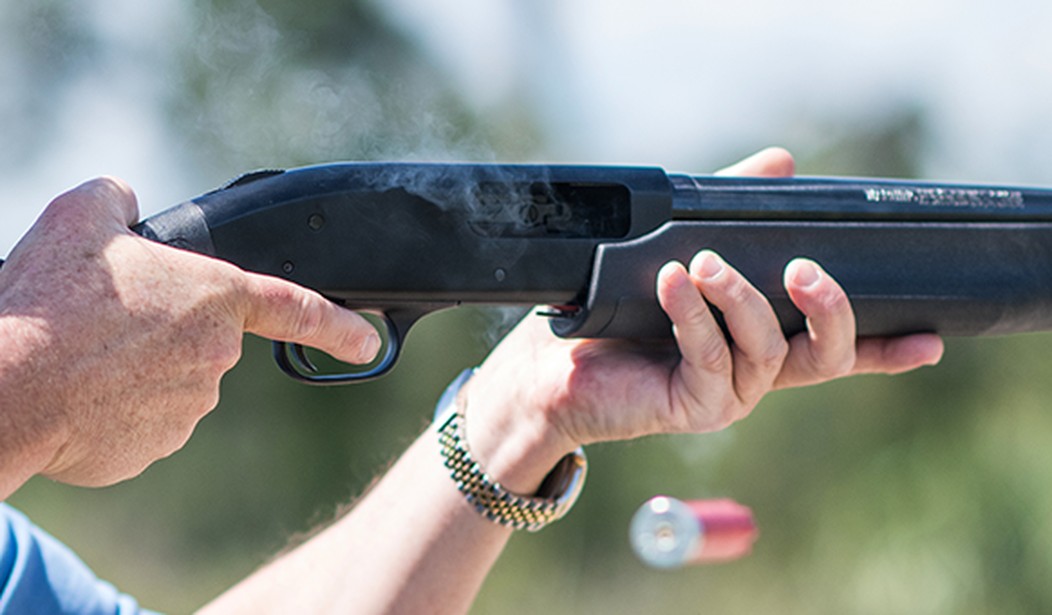Though the 2025 legislative session in Texas won't conclude for a few more weeks, Thursday was a critical moment for hundreds of bills that have been filed this year.
Under legislative rules, any bill that wasn't vote on in its house of origin by the end of the day was officially done for the year, and several pro-Second Amendment bills managed to beat the deadline and remain on track to get to Gov. Greg Abbott's desk.
[Rep Wes] Virdell filed HB 3053, which would amend Local Government Code to prohibit a municipality or county from adopting or enforcing an ordinance, order or other measure related to a firearm buyback program with the intent to remove firearms from public “circulation, reduce the number of firearms owned by civilians, or allow individuals to sell firearms without fear of criminal prosecution,” according to the bill language.
While supporters argue such programs reduce gun violence by allowing individuals to voluntarily surrender their firearms, often in exchange for financial compensation or other incentives, Virdell argues this hasn’t proven to be true. He argues that “such programs are largely ineffective in reducing crime rates, as the firearms turned in are often older or non-functional, and criminals are unlikely to participate,” the bill analysis explains.
I'm not aware of a single bit of research that's concluded these types of compensated confiscation events have any demonstrable and positive impact on crime or public safety, though at least one study found an increase in some crimes in the months following a "buyback".
Controlling for "demographic, socioeconomic, and policy controls measured at the county and state levels" that might affect the gun crime and gun death rates no matter what was going on with buybacks, the researchers concluded that "with 95 percent confidence, we can rule out gun crime declines in the 12 months following a [buyback] of greater than 1.3 percent and gun crime declines of greater than 2.2 percent" more than a year after they happen. They also found that in the immediate two months following a buyback, jurisdictions saw "an increase in incidents of firearm-related crime. The 7.7 percent increase in gun crime…is relatively modest, suggesting at most, two additional gun crimes." They saw no corresponding increase in non-gun crimes in those two months. Breaking down the distinction between violent and nonviolent gun crimes, they found no evidence that buybacks lowered either in the short or the long run.
Banning gun "buybacks" will remove a public relations tool utilized by anti-gun politicians who want to say they're doing "something" to address crime, but putting an end to these programs isn't going to make any community in Texas a more dangerous place.
Besides Virdell's bill prohibiting these schemes, several other good bills also passed out of the House on Thursday.
Virdell also filed HB 2458 to establish a defense to prosecution for aggravated assault for those who threaten to cause death or serious bodily injury by exhibiting a deadly weapon in act of self-defense.
“Current law relating to brandishing a firearm creates confusion over what conduct is considered unlawful, as state law does not define ‘brandishing,’" the bill analysis states. “Depending on the situation, displaying or drawing a firearm does not alone constitute an illegal act,” Virdell argues. Under current law, depending on the circumstance, those who display or draw a firearm in Texas may face criminal charges, including unlawfully carrying a weapon, deadly conduct, or aggravated assault, among others. His bill addresses the issue by providing clarification and amending the state penal code. The bill passed with bipartisan support by a vote of 119 to 18.
Most defensive gun uses don't involve a pull of the trigger, but if displaying a firearm in self-defense can lead to prosecution for "brandishing" then Virdell's legislation would certainly be an improvement on the status quo. The fact that even a significant number of Democrats joined in support of HB 2458 is a positive sign, and hopefully the Senate will quickly follow suit.
Other good bills to cross over to the Senate include HB 170, which bolsters the state's Castle Doctrine statute by giving those who act in self-defense immunity from civil liability, and HB 1794, which repeals the state's "gun-free" status for polling places, at least for those who possess a valid carry license.
The Senate, meanwhile, has already approved several pro-2A bills of its own, including SB 1065, which would prohibit contractors who lease most government-owned property from banning concealed carry by those with a Texas carry license. That bill is aimed at getting rid of the carry ban at the Texas State Fair, which was put in place last year by the Texas Fair board. SB 1065 is currently pending a hearing in the House State Affairs Committee, and is likely to advance out of committee in the near future.
While none of these bills are as high-profile or as far-reaching as Constitutional Carry, campus carry, or some other pro-Second Amendment bills that have become Lone State law in the past few years, they would all be substantial victories for gun owners if they're signed by Gov. Abbott. The biggest issue now is one of timing, not legislative opposition. With sine die approaching on June 2, there's going to be a mad rush to advance hundreds of bills in the coming days, and gun owners should be in contact with their representatives and senators to ensure that none of these good bills get left behind.









